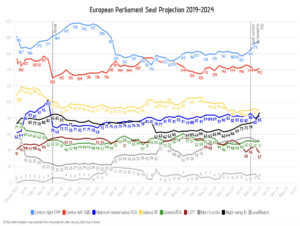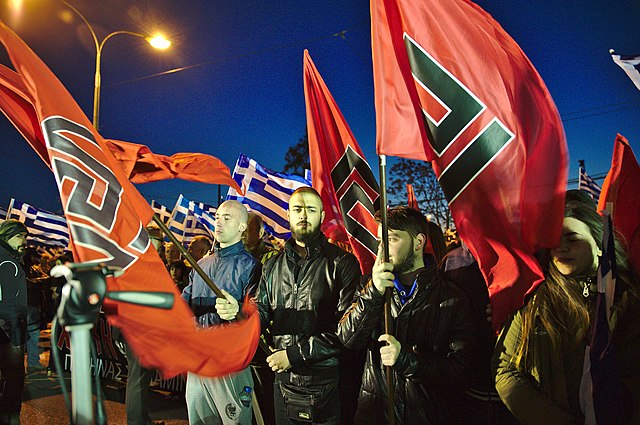On the 7th of October 2020 a massive protest of around 20,000-30,000 people in Athens was celebrating the verdict that officially condemned Golden Dawn as a criminal organization. This followed the downfall of Golden Dawn in June 2019 elections, where it failed to pass the threshold and secure a parliamentary seat, receiving 2.93% of the vote.
At that time, these pivotal events were fostering a widespread assumption in political and social circles that the influence of the far-right would be thereafter diminished or even vanquished. Contrary to these expectations, in national elections 2023 we witnessed a resurgence of three populist right-wing parties that were way more conservative than the ruling New Democracy party, securing 12.82% of the vote (i.e Spartiates 4.68%, Greek Solution 4.44%, and NIKI 3.70%), challenging all previous polls.
This development is not however confined to the Greek political landscape. In the aftermath of Greek elections, a similar political trend was identified in the Netherlands with the electoral success of Wilders, a strong signal of a broader surge of far-right movements across Europe. This trend is largely expected to influence the forthcoming European Parliamentary elections in June 2024, therefore strongly affecting the political dynamics and balances within the Parliament as seen in the graphic below. It is also linked to the rise of AfD in Germany and Marine Le Pen’s prominence in France during the previous years, spreading concerns over the future of the European Union and the implications over policymaking.
Distribution of Seats in the European Parliament

Source: Europe Elects
In this context, ETERON Institute for Research and Social Change has published a project shedding light in the far-right vote, attempting to answer the question whether the voters of these three parties constitute some form of ideological and political community. To that end, a survey that reached 3,058 participants was conducted by aboutpeople polling company on behalf of ETERON and covered several hot-debated topics such as foreign policy, immigration, LGBTQ+ rights, and the climate change. It is worth noting that among other striking facts, 57.2% of the sample responded positively that the presence of large number of immigrants constitutes a threat to Greek culture. This clear anti-immigration stance of the Greek society is even deeper among voters of far-right parties and goes up to the astonishing 90%.
Furthermore, we also observe that while far-right voters adopt a rather conservative approach in most ongoing challenges, conservative views also grow within the broader electorate such as the strongly negative views over the adoption of children by same-sex couples that goes up to 58.6%. Nonetheless, aside from pessimism, our survey leaves room for some positive deliberation as a moderately liberal stance on several issues is observed in the general population, like for instance the fact that only 19.6% of the respondents do not consider climate change as a threat to the environment.
As we approach the European Parliament elections, progressive parties must address the widespread concerns of the European electorate over the future of the EU and what it represents in terms of ideas, vision and values. The threatening dynamic of the far-right cannot be overlooked as it is more than evident, both in the Greek case but also in many member-states, that the far-right shows an upward dynamic in polls; a dynamic that is not solely electoral but also ideological and strongly political and in that sense even more difficult to deal with.

Christos Papagiannis
*Christos Papagiannis is Director at ETERON Institute for Research and Social Change. He has worked in the field of media both as political researcher and digital marketing manager. Christos has graduated from the Department of Political Science and History at Panteion University holding an IKY Foundation scholarship (summa cum laude) and the Athens University of Economics and Business (AUEB). He is currently pursuing a second master’s degree in public administration at LSE.
SoMe: FB/@christos.papagiannis2 INSTA/@chris__papagiannis X/@C_Papagiannis

